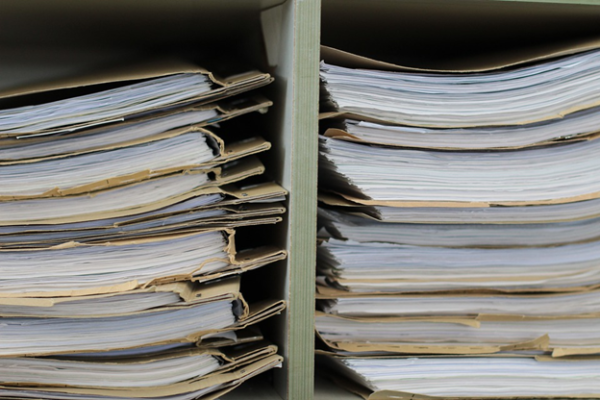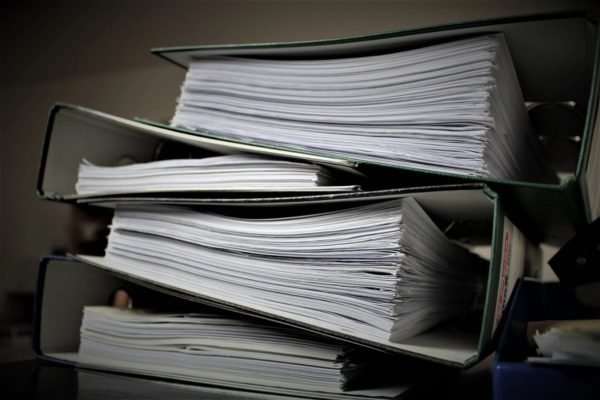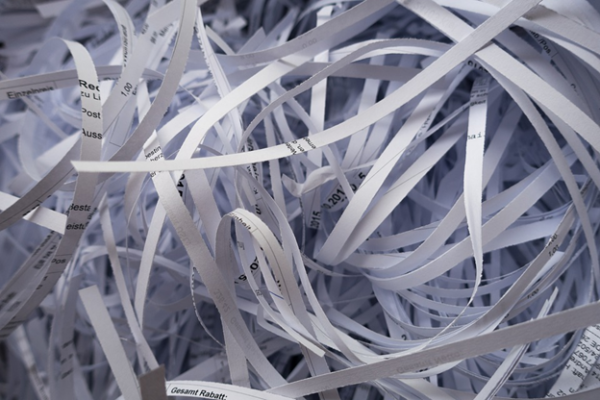When you work for a small business, it might not be unusual to find yourself in a position where you have hundreds, or even thousands, of documents that you no longer need. If you have any old documents or files that you need to get rid of, it can be challenging to get rid of them. The average person will have no problem just tossing the files into the trash can or recycling bin, but what if you need to get rid of a considerable amount of files at once? How do you get rid of so many files you don’t want without getting into trouble? The good news is that several methods you can utilize are not merely good practice but can also help you maintain good standing with regulatory authorities.

What Is The Purpose Of Destroying Documents?
Companies need to destroy their documents because they don’t want any sensitive information to be leaked online. Destroying documents is a process that involves shredding them or burning them so that they cannot be reconstructed at all. In most cases, paper shredders or furnaces like incinerators are used for this purpose. Destroying essential documents helps companies protect their customers and employees from potential data breaches and identity theft.
Document Shredding
With document shredding, you can take care of your personal or company’s documents responsibly. You can trust a professional to do the job correctly so that you do not run the risk of identity theft. If your business generates a lot of paperwork each day, document shredding is essential for data protection. Many companies have switched to digital, but they still need ways to secure documents destruction with confidence and care. This is one of the best ways to ensure the complete and secure destruction of documents. If done professionally, there shouldn’t be any trace of the information left to decipher from the shreds. Document shredding is a way to ensure that confidential information stays safe and secure in an environmentally friendly way.

Confidential Waste Incineration
Confidential waste incineration is the process of burning confidential or sensitive material. Usually, these are materials that are too sensitive to be treated as regular trash. This could include medical documents, private company information, etc. This process is often costly to run and requires much high-tech equipment and personnel to operate safely. For this reason, it’s usually only used for a limited number of materials at a time. Confidential waste incineration can also be used as an alternative for those who don’t want their private or sensitive information to be released into the environment from people disposing of the waste improperly or traditional trash disposal methods that can release emissions into the environment. Nevertheless, it is an inferior method to professional shredding.
Why Outsourcing Document Destruction Is A Necessity For Businesses
The need for businesses to destroy documents is a necessity and not an option. Companies are required by law to destroy sensitive records when they are done with them. This is because there could be instances where sensitive information leaks accidentally or by someone who had no intention of doing so. It is a good idea to follow your company’s document destruction policy to avoid causing any issues. However, businesses typically find better results when they outsource this job.

Legal Factors
Some businesses have an obligation by law to destroy documents of a sensitive nature. These can range from the legal profession to companies detailing personal data. Moreover, some supranational laws, like the General Data Protection Regulation (GDPR), include digital and physical copies of a person’s data. For example, if someone in the EU requires that they be erased from a database, the company must comply. This means destroying both digital and physical copies. In addition, if the physical copies aren’t destroyed satisfactorily, the company will still be liable for damages.
Identity Theft
Identity fraud is the illegal act of obtaining and using another person’s personal data without their knowledge and consent, typically for economic gain. There are many different ways identity fraud can occur, and it can be challenging to find out who has committed the crime. It often goes unnoticed by victims until severe damage has been done. It is a legal obligation of all businesses that collect your data to ensure that identity fraud cannot be committed. The only viable method of preventing this is to destroy the relevant documentation.
Saving Money
It is no secret that it requires an enormous amount of money to store old documents. If you factor in inner-city warehouses, then the cost increases exponentially. Therefore, it makes perfect business sense to eliminate documents that have passed their legal expiration date. If you store a lot of physical documentation, the initial costs of disposal can be high. Still, when you consider your cost-to-benefit ratios, you must remember to include supplementary expenses like energy and staffing. If you are paying staff to store old documents, you keep them from other more productive work.
Increased Productivity
This option only applies if you outsource the job of document destruction. If you decide on doing it in-house, you will lower productivity. Nevertheless, suppose you do decide on outsourcing it. In that case, you will discover considerable increases in productivity from staff who can focus on the job at hand rather than worry about having to spend weeks shredding or burning.
Environmental Concerns
Destroying documents is only the first part of the equation. Once you have successfully turned your mountain of paperwork into mountains of shredded paper, you will still have to get rid of it somehow. Regulations regarding the legalities of documentation and the destruction of it go hand-in-hand with regulations regarding waste disposal. Therefore, you can choose to spend time and effort figuring this step out. Still, the best option is to let other companies deal with the waste responsibly, allowing your business to carry on doing business.
Destroying your old documentation is a part of most businesses that hold data on people or their products. However, there comes a time when those documents need to be destroyed, and you have the choice of doing everything in-house or outsourcing it to the professionals. Whatever you decide, make sure it’s a good value and that you stay within local laws for disposing of data and subsequent waste.





